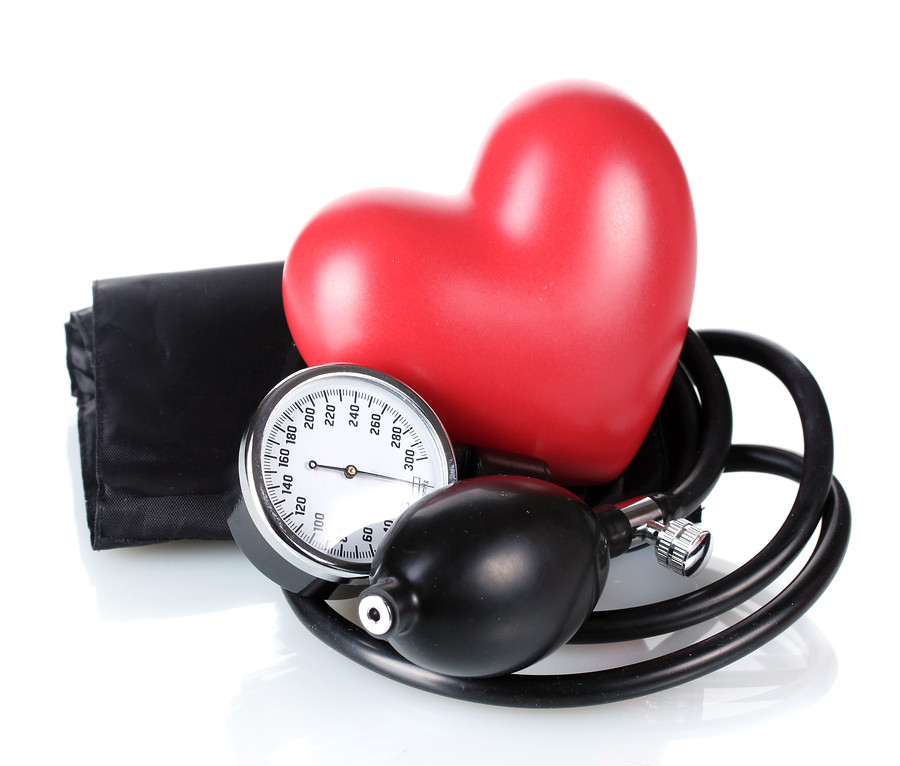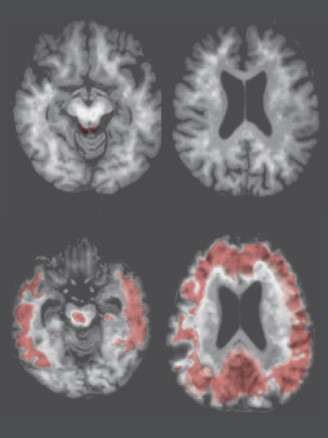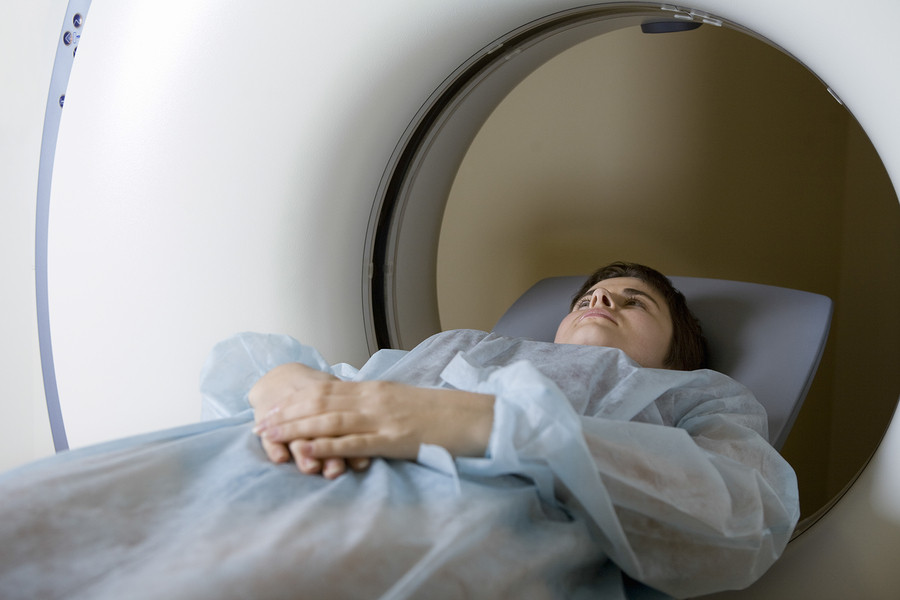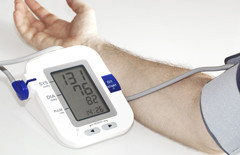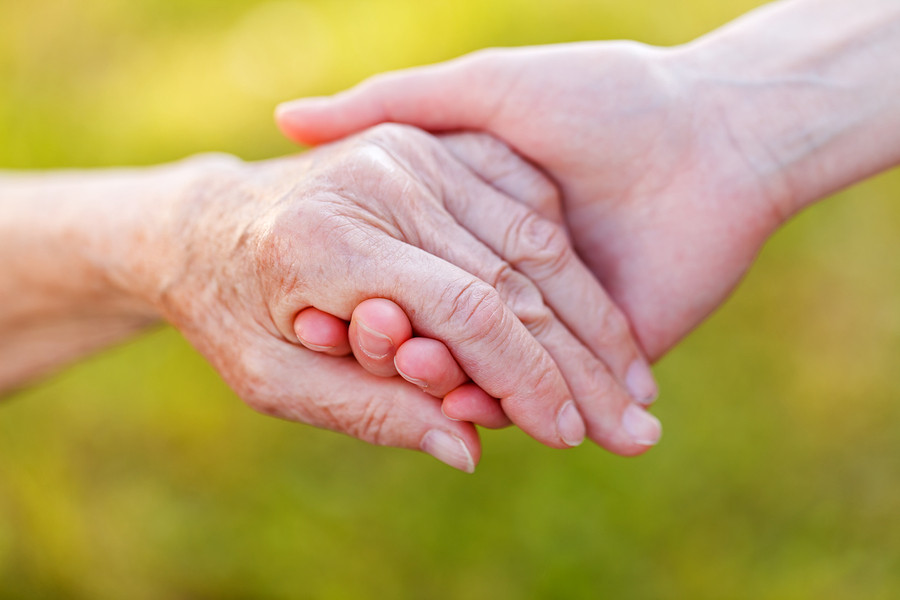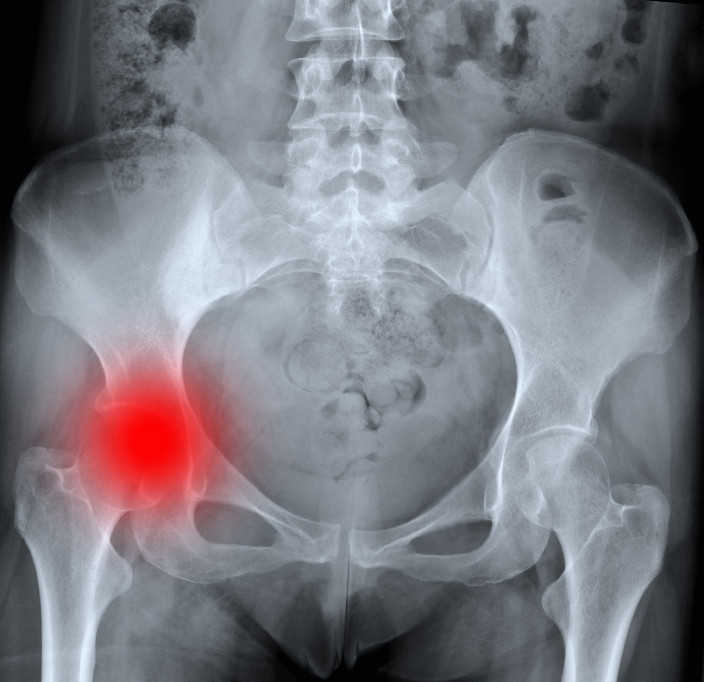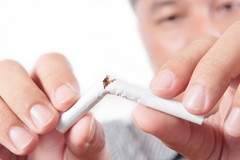
Respiratory health harms often follow flooding: Taking these steps can help

Tips to leverage neuroplasticity to maintain cognitive fitness as you age

Can white noise really help you sleep better?

Celiac disease: Exploring four myths

What is prostatitis and how is it treated?

What is Cushing syndrome?

Exercises to relieve joint pain

Think your child has ADHD? What your pediatrician can do

Foam roller: Could you benefit from this massage tool?

Stepping up activity if winter slowed you down
Harvard Health Blog
Read posts from experts at Harvard Health Publishing covering a variety of health topics and perspectives on medical news.
Articles
Expert panel says “no” to widespread testing for Alzheimer’s, dementia
A new report from the Alzheimer’s Association says that as many as 5 million Americans have Alzheimer’s disease or some other form of dementia. Every 67 seconds someone in the United States develops Alzheimer’s disease or dementia. That’s 470,000 Americans this year alone. Given that these thieves of memory and personality are so common and so feared, should all older Americans be tested for them? In proposed guidelines released yesterday, the U.S. Preventive Services Task Force said “no.” Why not? Even after conducting a thorough review of the evidence, the panel said that there isn’t enough solid evidence to recommend screening, especially since not enough is known about the benefits and the harms. In part, the recommendation is based on the sad fact that so far there aren’t any truly effective approaches to stop the forward progress of dementia.
Most headache-related brain scans aren’t needed
Severe headaches are a misery, whether they cause a dull ache or a steady, stabbing, or blinding pain. Such pain rarely comes from something catastrophic, like a tumor or a bleeding in the brain. Yet an estimated 12% of people with headaches get brain scans. A new study shows that these unnecessary scans add several billion dollars a year to health care costs for very little benefit. Excessive brain scanning costs more than just dollars. Repeated CT scans deliver enough radiation to increase the odds of developing cancer. Scans also tend to lead to more scanning if the test turns up something strange. Many people who see a doctor because of severe and recurrent migraine headaches don’t need brain scans. They need the right therapy to stop their pain.
When caring for a loved one, many caregivers go it alone
An estimated 43.5 million Americans provide in-home, long-term care for older adult family members with a chronic illness. In a new JAMA survey, caregivers are typically women who spend about 20 to 40 hours a week providing care. Most caregivers feel abandoned and unrecognized by the health care system. Spousal caregivers face greater challenges than caregivers helping a parent for a variety of reasons, one of which is that they tend to be older. Many caregivers don’t know about, or take advantage of, services and support systems such as respite care, help with non-medical services such as housekeeping and cooking, counseling, and more. The Caregiver’s Handbook, a Special Health Report from Harvard Medical School, includes detailed information that can help women and men provide better care for their loved ones and take care of themselves.
Big arm-to-arm difference in blood pressure linked to higher heart attack risk
The next time you have your blood pressure checked, ask your health care to check it in both arms, rather than just in one. Why? A big difference between the two readings can give you an early warning about increased risk of cardiovascular disease, a new study suggests. Harvard researchers found that people who have a 10-point difference in blood pressure from one arm to the other are 38% more likely to have a heart attack, stroke, or a related problem than those with arm-to arm differences less than 10 points. Small differences in blood pressure readings between the right and left arm are normal. But large ones suggest the presence of artery-clogging plaque in the vessel that supplies blood to the arm with higher blood pressure. Clogging there means there’s a good chance the arteries in the heart and brain are also clogged, boosting the odds of having a heart attack or stroke.
Death of a spouse or partner can lead to heart attack or stroke
The grief of losing a spouse or partner affects not just emotional and mental health, but physical health as well. The surviving spouse or partner often develops health problems in the weeks and months that follow. A study published this week in JAMA Internal Medicine found that individuals who had lost a spouse or partner were more likely to have a heart attack or stroke within the next 30 days. Grief activates the sympathetic nervous system, which is responsible for revving up the body’s fight-or-flight response. That can lead to stress-induced changes in blood pressure, heart rate, and blood clotting. There is also a tendency after such a profound loss for the surviving spouse or partner to disregard his or her own health. It can take several months to a year to work through grief and grieving. If it lasts much longer, and is interfering with daily life—seeing friends, doing once-pleasurable activities—it’s possible that grief has morphed into something more serious, like depression.
After hip fracture, exercise at home boosts day-to-day function
Even after intensive rehabilitation therapy, many people who break a hip still can’t do things they used to do with ease, like dressing, rising from a chair, or climbing stairs, after . A report in this week’s Journal of the American Medical Association shows that simple exercises done at home can make a big difference in recovering from a broken hip. A set of “functional exercises” that mimic the kinds of things people normally do in their daily lives improved function and mobility among people who had broken a hip. It’s important :just do it.” At-home rehab is of no use if you don’t stick with it. These kinds of exercises can also help ward off post-fracture complications like blood clots, pneumonia, wound infections, and more. Extended bed rest after a major injury or surgery can feed a downward spiral of physical deconditioning and additional health problems.
New guidelines aim to help women prevent stroke
The first-ever guidelines for preventing stroke in women don’t fool around. They offer ways to prevent this disabling and potentially deadly event from adolescence to old age. More than half of the 800,000 Americans who have strokes each year are women. Nearly 4 million American women are living with the aftermath of a stroke. And because women live longer than men, their lifetime risk of having a stroke is higher. Those numbers are why stroke prevention is especially important for women. The guidelines cover the use of oral contraceptives, high blood pressure during pregnancy, the use of hormones after menopause, and migraine with aura. They also cover the fundamentals of stroke prevention, like controlling blood pressure, exercising more, eating a healthy diet, and not smoking.
CVS to become first major U.S. pharmacy to stop selling cigarettes
Cigarettes, cigars, and the like are the most deadly product that consumers can legally buy. It’s sadly ironic that they are sold in pharmacies, which are meant to dispense medications and other things designed to heal or promote health. The American Pharmacists Association, the American Medical Association, and other groups have urged pharmacies to stop selling cigarettes. Several major pharmacy chains have been mulling whether or not to take this advice. Today, one of them has acted. The CVS chain has decided to stop selling tobacco products, and will phase out their sales over the next year. The news came in a press release from CVS and an opinion piece published today in JAMA, the journal of the American Medical Association. Pharmacists will likely cheer the decision—one survey of pharmacists showed that only 2% of them favor the sale of tobacco products in their stores.
New study adds caution to testosterone therapy for “low T”
Mass marketing of testosterone therapy may have men eager to try this seemingly simple fix. But the latest science should have them scratching their heads and putting away the credit card—at least for now. A new study published in the online journal PLOS One shows an increase in the risk of having a heart attack in the months after starting testosterone therapy. The potential for danger was highest in older men. A report in the November 6, 2013, issue of JAMA showed that men who used testosterone therapy didn’t fare as well after artery-opening angioplasty as men who didn’t take testosterone. Neither was the type of study that can prove cause and effect. They can only show associations, or links. That means there’s no smoking gun here that testosterone therapy is harmful. But the studies do suggest caution. Given the uncertainly over the benefits and risks of testosterone therapy, what’s a man to do? Take a cautious approach, advises the Harvard Men’s Health Watch.
Too much sitting linked to an early death
Many Americans spend most of each workday sitting in a chair, their fingers the only part of their bodies moving with any intensity. The ease of this modern workday could come at the expense of longevity. A new study of older women in the American Journal of Preventive Medicine finds that sitting for long stretches of time increases the odds of an untimely death. And here’s the kicker: Regular exercise doesn’t do much to diminish the risk of sitting all day. When you sit, you expend fewer calories than you would while standing, and you demand little effort from your muscles. This can help set the stage for diabetes and heart disease. One way to avoid prolonged sitting during the workday is to switch to a standing desk, or one that can adjust to sitting and standing positions. An easier, no-cost solution is to set your smartphone timer to go off every 30 to 60 minutes during the day, and move around when the alarm rings.
Mediterranean-style diet linked to healthier arteries throughout the body
A landmark clinical trial done in Spain, known by the acronym PREDIMED, continues to support the health benefits of following a Mediterranean-style eating pattern. Last year, PREDIMED researchers reported that Mediterranean-style eating—rich in fruits, vegetables, and healthy plant oils—prevents heart attacks, strokes, and death from heart disease. This week in The Journal of the American Medical Association, they report that a healthy Mediterranean-style diet can also help prevent peripheral artery disease (PAD), a form of “hardening of the arteries.” It’s an important finding, since as many as 12 million Americans have PAD. It can cause leg pain when walking that goes away with rest (called intermittent claudication); a weakening of the aorta, the main pipeline that delivers blood to the body; pain after eating; erectile dysfunction; and other problems.
Heavy drinking in middle age linked to memory loss in men
For some people, like those with an addiction, any amount of alcohol is too much. For others, drinking alcohol is something of a balancing act — a little may be healthful, while more than a little may be harmful. A new report in the journal Neurology highlights the dual effects of alcohol in men. As part of the Whitehall II study in Britain, researchers assessed the drinking habits of middle-aged men and women three times over a 10-year period. The study participants also took a mental skills test three times over the next 10 years. Compared with men who didn’t drink or who drank moderately, mental decline began to appear one to six years earlier in men who averaged more than 2.5 drinks a day. (There weren’t enough heavy drinkers among women to show any clear differences.) How does a person know if he or she is drinking too much? The CAGE and AUDIT tests can help.
Study says aggressive treatment for diverticulitis is often overused
Diverticulitis, an unpleasant condition that occurs when tiny pouches inside the large intestine become inflamed, can cause intense lower abdominal pain, diarrhea, constipation, a fever, and sometimes a good deal of rectal bleeding. Following a liquid diet for a while can help treat it, but antibiotics, and sometimes even surgery, may be needed. A new study in JAMA suggests that these treatments may be overused.
University of Michigan researchers reviewed the results of 80 studies of diverticulitis and its treatment. While the team agreed that antibiotic use and surgery are sometimes necessary, it concluded that there should be a lesser role for aggressive antibiotic or surgical intervention for chronic or recurrent diverticulitis than was previously thought necessary. Some studies suggest that exercising, controlling weight, and eating a high-fiber diet can prevent diverticular disease. It can also bring relief from constipation, better cholesterol control, and make for more filling meals. Adults should get 25 to 30 grams of dietary fiber every day. It’s best to get it from high-fiber foods, such as beans, whole grains, vegetables, and fruits. Some people need a fiber supplement.
Surgeon General’s 1964 report: making smoking history
On a Saturday morning 50 years ago tomorrow, then Surgeon General Luther Terry made a bold announcement to a roomful of reporters: cigarette smoking causes lung cancer and probably heart disease, and the government should do something about it. Terry, himself a longtime smoker, spoke at a press conference unveiling Smoking and Health: Report of the Advisory Committee of the Surgeon General of the Public Health Service. That press conference was held on a Saturday in part to minimize the report’s effect on the stock market. The 1964 Surgeon General’s report, and others that followed, have had a profoundly positive effect on the health of Americans, despite the tobacco industry’s concerted and continuing efforts to promote smoking. By one new estimate, the decline in smoking triggered by the 1964 report and others that followed prevented more than 8 million premature deaths, half of them among people under age 65. But we still have a long way to go. Some 42 million Americans still smoke, and tobacco use accounts for millions of deaths each year around the world.
Mindfulness meditation may ease anxiety, mental stress
Many people practice meditation in hopes of staving off stress and stress-related health problems, even though the evidence for doing so is spotty. A new study that analyzed the results of nearly 50 solid clinical trials of meditation shows that mindfulness meditation can help ease psychological stresses like anxiety, depression, and pain. One way it does this is by training you to experience anxious thoughts or stresses in completely different and less emotionally disturbing ways. Mindfulness-based stress reduction training, developed by Dr. Jon Kabat-Zinn at the University of Massachusetts Medical School in Worcester, MA, is now widely available in cities throughout the United States. You can also learn it yourself from books or online recordings. Or try this short meditation, from the Zen Buddhist monk Thich Nhat Hahn: “Breathing in, I calm my body. Breathing out, I smile. Dwelling in the present moment, I know this is a wonderful moment.”
94-year-old Master track star an inspiration to all
A recent article in Parade magazine caught my eye because it has lessons for us all. The article was about Olga Kotelko, a 94-year-old woman, who is a competitive runner and track star. Her age alone is impressive. The fact that she didn’t enter her first Master’s competition until she was 77—an age when many people are hanging up their sneakers—is amazing. The article offers six lessons that anyone can learn from Ms. Kotelko’s daily life. She can be an inspiration for anyone, at any age, who wants to start exercising or to exercise more. You are never too old or too frail to start exercising. Start out with a safe, easy program. Gradually add more and harder exercise. Who knows where you might end—possibly in an event challenging the likes of Olga Kotelko.

Respiratory health harms often follow flooding: Taking these steps can help

Tips to leverage neuroplasticity to maintain cognitive fitness as you age

Can white noise really help you sleep better?

Celiac disease: Exploring four myths

What is prostatitis and how is it treated?

What is Cushing syndrome?

Exercises to relieve joint pain

Think your child has ADHD? What your pediatrician can do

Foam roller: Could you benefit from this massage tool?

Stepping up activity if winter slowed you down
Free Healthbeat Signup
Get the latest in health news delivered to your inbox!
Sign Up

